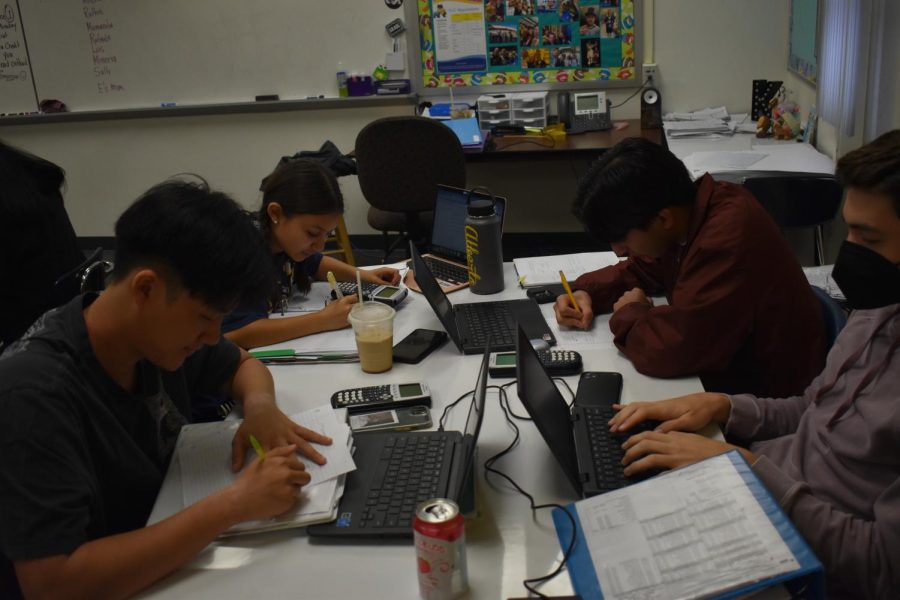IB Purgatory
John W. North has three academies: GBIT, LAPS, AVID, and ED. Apart from the three branches of career-focused academies exists the International Baccalaureate Program. According to the JWN Course Student Handbook, the sample four year plan for IB is labeled as the “Most Rigorous”. Ironically so, the IB program holds an appeal to students who probably wouldn’t have transferred to North otherwise.
For the most part, the first two years of preparation in the 4-year plan are a breeze. But when junior year hits, the courses become brutal. Juniors begin missing breakfast and missing sleep. Students’ social lives become taut and what were once personal priorities are forgotten. Life simply becomes school and a Stabucks coffee in the morning.
The IB Program is a two year program recognized in 140 countries around the globe that prepares and expects students to perform at a higher level of education that is recognized internationally. Luckily, the IB Program offers two alternatives: IB Certificate and IB Diploma. Although the certificate route is certainly challenging, it requires the passing of one of two IB courses, whereas a Diploma is only awarded when students pass, not just take, the required tests and courses with a total of 24-27 points. IB Diploma follows a path of requirements and although many JWN students set out on the path, not many have remained in its trenches.
The primary incentive to the program is that with an IB Diploma, students gain an advantage in admissions to colleges and universities in the United States and abroad. But the main incentive for the program is inconsistent, since the IB diploma is not guaranteed. Usually, high school students know their graduation status, but with an IB Diploma, students must wait anxiously for their test scores to see if they are qualified candidates.
JWN IB Diploma Candidate Ellen Myung offers, “There are not many things I would criticize about the program except that a lot of students are working towards an IB Diploma mostly for their college application. However, you don’t get to know whether or not you got the diploma, until after you applied and were already accepted into a college. So if students could get their diploma earlier, they would be able to get the fruits of their labor.”
Positively speaking, the work aids in the development of analytical skills and good habits.
Most of the time, though, the realities are what Myung expresses, “A lot of us are also in several extracurriculars. So it just felt like extra stress on our shoulders. Having extracurriculars [along] with the Diploma are pushed at our school, but it is difficult for a lot of us to handle all of that at one time.”
During assemblies, IB classrooms are, for the most part, wiped clean. Most IB students are involved in either Renaissance, sports, BSR, AVID, Cheer, or BSU, all of which have field trips which require missing class regularly. Juggling extracurriculars and school is painful and it is easy for students to fall off balance.
Junior IB Diploma Candidate Erikan Ibekwe expresses the redundancy of the IB Diploma curriculum, ”I think that TOK [Theory of Knowledge] should be optional, because you’re already taking extra IB classes for the diploma, doing the [required 4,000 word extended] essay, and doing the community service hours. Then on top of that, you have to do another class [TOK], either in the early mornings or for three hours in the afternoon.”
Not all is bleak, though, as Myung claims the rigor that the Diploma demands builds her “stamina” and her endurance. Ibekwe thanks and credits her Honors World Literature teacher, Ms. Ruiz, for her improved writing and thinking skills.
At the end of the day, the choice to remain in IB Diploma is a battle of wills- the determined and ambitious nature of a learner and the search for fun and experience of a teenager.
Like all things difficult, IB seems like a purgatory, but North is proud of our IB Diploma and Certificate students, for their resilience and discipline.






